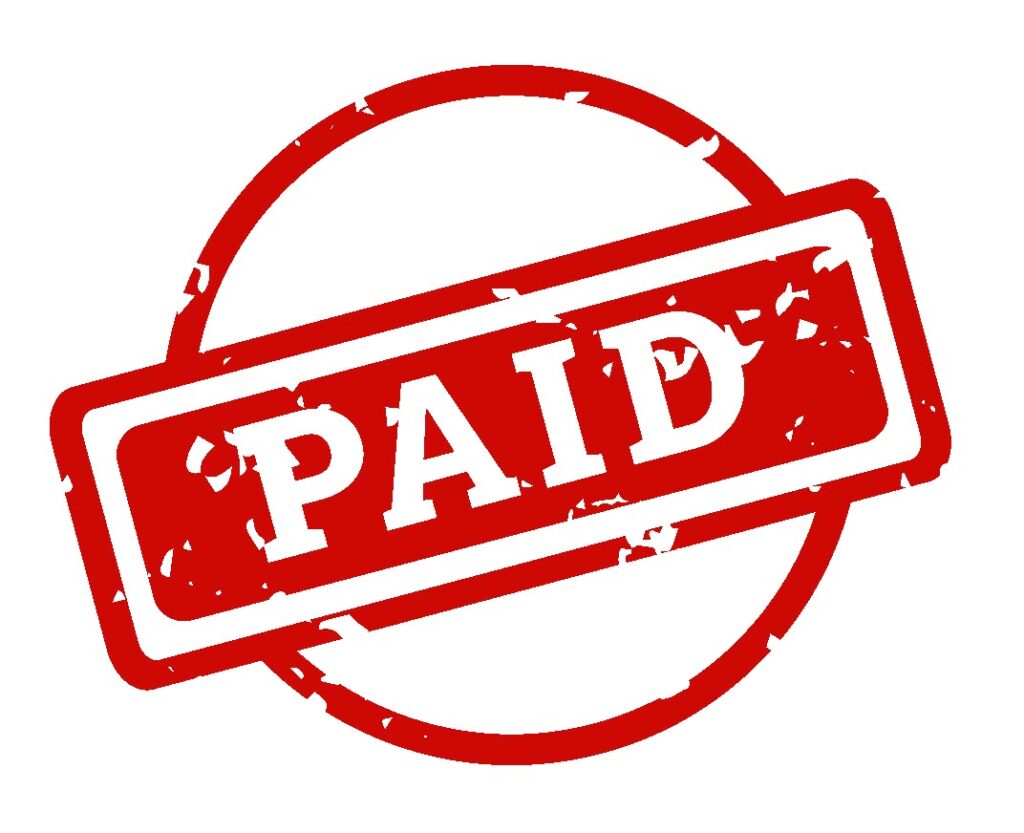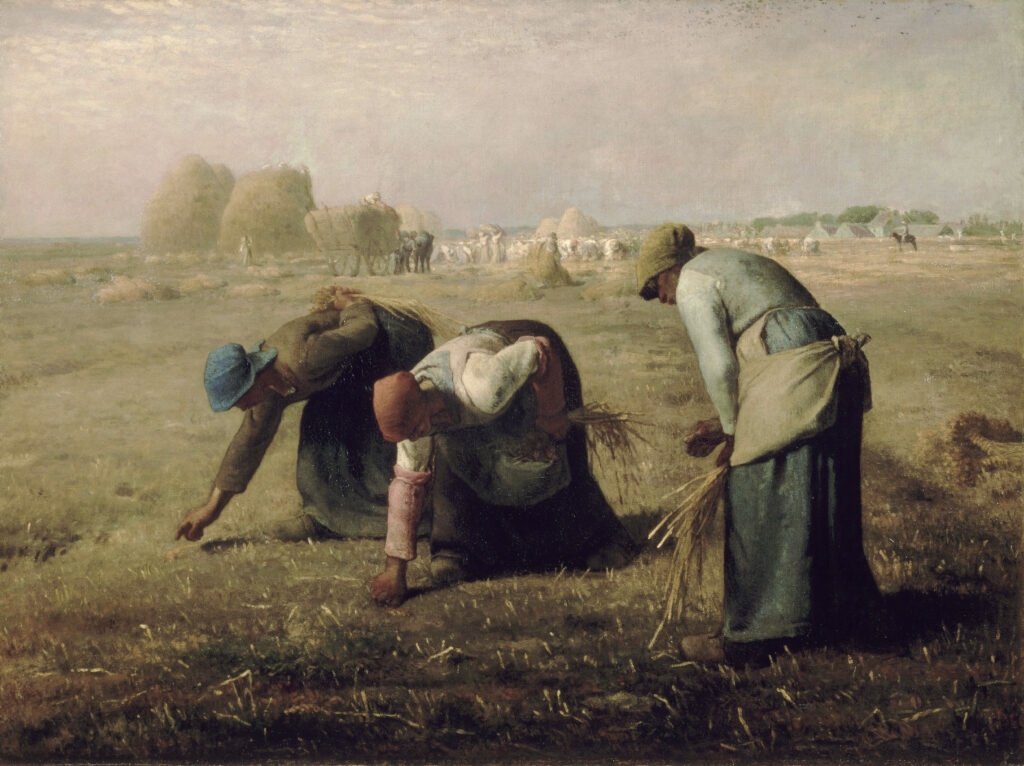After the Exodus, when God gave the Israelites his law, it included provision for a kinsman redeemer. This is an often-overlooked idea today, but it’s a powerful picture of Jesus and redemption and it’s found throughout the Old Testament. If an Israelite found themself in financial trouble or in need of protection, they could call on a kinsman redeemer for rescue.
The idea that God himself would provide a Redeemer appears in the oldest book in the Bible. After Job lost everything and felt he was in Satan’s grip, he still looked forward to Jesus’ day and meeting his kinsman redeemer:
“I know that my redeemer lives and that in the end he will stand upon the earth. And after my skin has been destroyed, yet in my flesh I will see God.”
Job 19:25 NIV
The role of kinsman redeemer is defined in Leviticus 25. By definition, a kinsman redeemer was a close male relative who accepted the responsibility to redeem what had been lost. This was an important part of life in Ancient Israel.
So, if an Israelite was forced to sell their property, or even sell themselves into slavery, their kinsman redeemer could buy back their property or their freedom. The new owner didn’t have an option to refuse to sell. As long as the buyer was willing to pay a price equivalent to the original selling price, the transaction was certain.

If a woman’s husband died, it would be difficult or maybe impossible for her to live without the protection of husband or family. Therefore, the law provided that a kinsman redeemer could step into the gap the husband had left, and marry his widow. This aspect of the law goes way beyond just redeeming a person or their property from slavery or other loss. Marriage was a lifelong commitment to love, cherish, protect, and share your future.
Taking on the role of kinsman redeemer wasn’t to be done lightly, and certain requirements had to be met.
- You had to be a close relation from the same family group – a kinsman.
- You had to be willing. If the relation was not willing, they could not be forced to do it. Being willing to help is at the heart of what a kinsman redeemer is.
- In addition to being willing, you had to be able to follow through with the redemption. If you did not have the resources, financial and otherwise, then you could not be the redeemer.
The book of Ruth is a living parable that directs us to Jesus as our own Kinsman Redeemer. The book opens during a famine in Bethlehem so severe that Naomi and her husband were forced to travel to Moab to avoid starvation. While living in Moab, their two sons married Moabite women, Ruth and Orpah. Soon after, tragedy struck when Naomi’s husband died. Then both of her sons died too, leaving behind three destitute widows.
When Naomi learned that the famine had ended in Judah, she decided to go back to Bethlehem. She told her daughters-in-law to return to their own families, since she had no other sons to marry them. Orpah returned to her father’s family, but Ruth insisted on staying with Naomi.
But Ruth replied, “Don’t urge me to leave you or to turn back from you. Where you go I will go, and where you stay I will stay. Your people will be my people and your God my God. Where you die I will die, and there I will be buried. May the LORD deal with me, be it ever so severely, if even death separates you and me.”
Ruth 1:16-17 NIV
Naomi and Ruth returned to Israel to live, but they were destitute, with no secure means of providing for themselves. God’s law ensured that the poor could find food by gleaning in the fields, picking up any grain left behind by the harvesters. The law also specified that farmers should plant seed in the whole field, but not harvest the corners, leaving that grain for the poor.
When you reap the harvest of your land, do not reap to the very edges of your field or gather the gleanings of your harvest. Do not go over your vineyard a second time or pick up the grapes that have fallen. Leave them for the poor and the foreigner. I am the LORD your God.
Leviticus 19:9-10 NIV
So Ruth offered to go to the fields each day to glean food during the harvest. As it turned out, Ruth was gleaning in a field belonging to Boaz, who was from the same clan as Naomi’s late husband.

Boaz knew of Ruth’s situation and told his workers to leave plenty of grain for her to find. He also fed her along with the other workers, and he encouraged her to work in the safety of his fields throughout the harvest. When Ruth came home that night, Naomi saw how much grain she had gathered, so she asked where she had gleaned that day. When Ruth told her about Boaz, and his kindness to them, Naomi was relieved, and told Ruth that Boaz was a close relative of her late husband, which made him one of their kinsman redeemers. So Ruth continued to glean in Boaz’s fields until the harvest was finished.
Soon after, Naomi announced that the time had come for Ruth to find a husband and home, where she would be provided for.
One day Ruth’s mother-in-law Naomi said to her, “My daughter, I must find a home for you, where you will be well provided for. Now Boaz, with whose women you have worked, is a relative of ours. Tonight he will be winnowing barley on the threshing floor. Wash, put on perfume, and get dressed in your best clothes. Then go down to the threshing floor, but don’t let him know you are there until he has finished eating and drinking. When he lies down, note the place where he is lying. Then go and uncover his feet and lie down. He will tell you what to do.”
Ruth 3:1-4 NIV
This sounds immodest, if not immoral to our ears, but it makes much more sense when we learn more about their culture and customs. As a recent widow, Ruth had been wearing clothes appropriate to mourning. Naomi was telling her it was time to end her season of mourning – to wash her face and change her clothes!
The rest of the passage sounds even more bold, until we understand the symbolism involved.
“Who are you?” he asked. “I am your servant Ruth,” she said. “Spread the corner of your garment over me, since you are a guardian-redeemer of our family.”
Ruth 3:9 NIV
The word for servant that Ruth uses here also means that she is a woman who is eligible to be a wife. The next sentence doesn’t make sense to us in the NIV translation. What does the corner of a garment have to do with a kinsman redeemer?
The Hebrew word translated “corner” in the NIV can also be translated “wings”. So verse 9 becomes more clear in the ESV translation.
He said, “Who are you?” And she answered, “I am Ruth, your servant. Spread your wings over your servant, for you are a redeemer.”
Ruth 3:9 ESV
Ruth was appealing to Boaz to protect her like a hen protects her chicks under its wings – to marry and protect her based on his legal status as her kinsman redeemer. The idea of finding refuge in the shadow of God’s wings was used often in Psalms, and once by Jesus.
“Jerusalem, Jerusalem, you who kill the prophets and stone those sent to you, how often I have longed to gather your children together, as a hen gathers her chicks under her wings, and you were not willing.
Luke 13:34
Have mercy on me, my God, have mercy on me, for in you I take refuge. I will take refuge in the shadow of your wings until the disaster has passed.
Psalm 57:1
He will cover you with his feathers, and under his wings you will find refuge; his faithfulness will be your shield and rampart.
Psalm 91:4
Boaz accepted his role as kinsman redeemer, redeemed all of Naomi’s property in Israel, and then happily married Ruth.
“The LORD bless you, my daughter,” he replied. “This kindness is greater than that which you showed earlier: You have not run after the younger men, whether rich or poor. And now, my daughter, don’t be afraid. I will do for you all you ask. All the people of my town know that you are a woman of noble character.
Ruth 3:10-11 NIV
Ruth and Boaz became the parents of Obed, the father of Jesse, the father of David, Israel’s heroic king. So, Ruth became David’s great-grandmother.
So Boaz took Ruth and she became his wife. When he made love to her, the LORD enabled her to conceive, and she gave birth to a son. The women said to Naomi: “Praise be to the LORD, who this day has not left you without a guardian-redeemer. May he become famous throughout Israel! He will renew your life and sustain you in your old age. For your daughter-in-law, who loves you and who is better to you than seven sons, has given him birth.” Then Naomi took the child in her arms and cared for him. The women living there said, “Naomi has a son!” And they named him Obed. He was the father of Jesse, the father of David.
Ruth 4:13-17 NIV
It’s easy to see how the story of Ruth relates to our own. Like Naomi and Ruth, we need a kinsman redeemer. And we can see how Jesus has filled that need. Because that redeemer had to be a relation, Jesus came to earth as a man. Jesus was willing to act as our redeemer, willing to pay any price for our redemption. Jesus actually spoke of his death as a ransom:
For even the Son of Man came not to be served but to serve others and to give his life as a ransom for many.”
Matthew 20:28 NLT
For even the Son of Man came not to be served but to serve others and to give his life as a ransom for many.”
Mark 10:45 NLT
And Jesus went far beyond purchasing us out of slavery to sin, offering to take mankind as his “bride”.
Facets of Redemption Found in this Picture:
- Our Redeemer would be a close relation.
- Our Redeemer would be qualified to pay the price of our redemption.
- Our Redeemer would be willing to pay any price for our redemption.
- Our Redeemer would be “searching for his bride”.